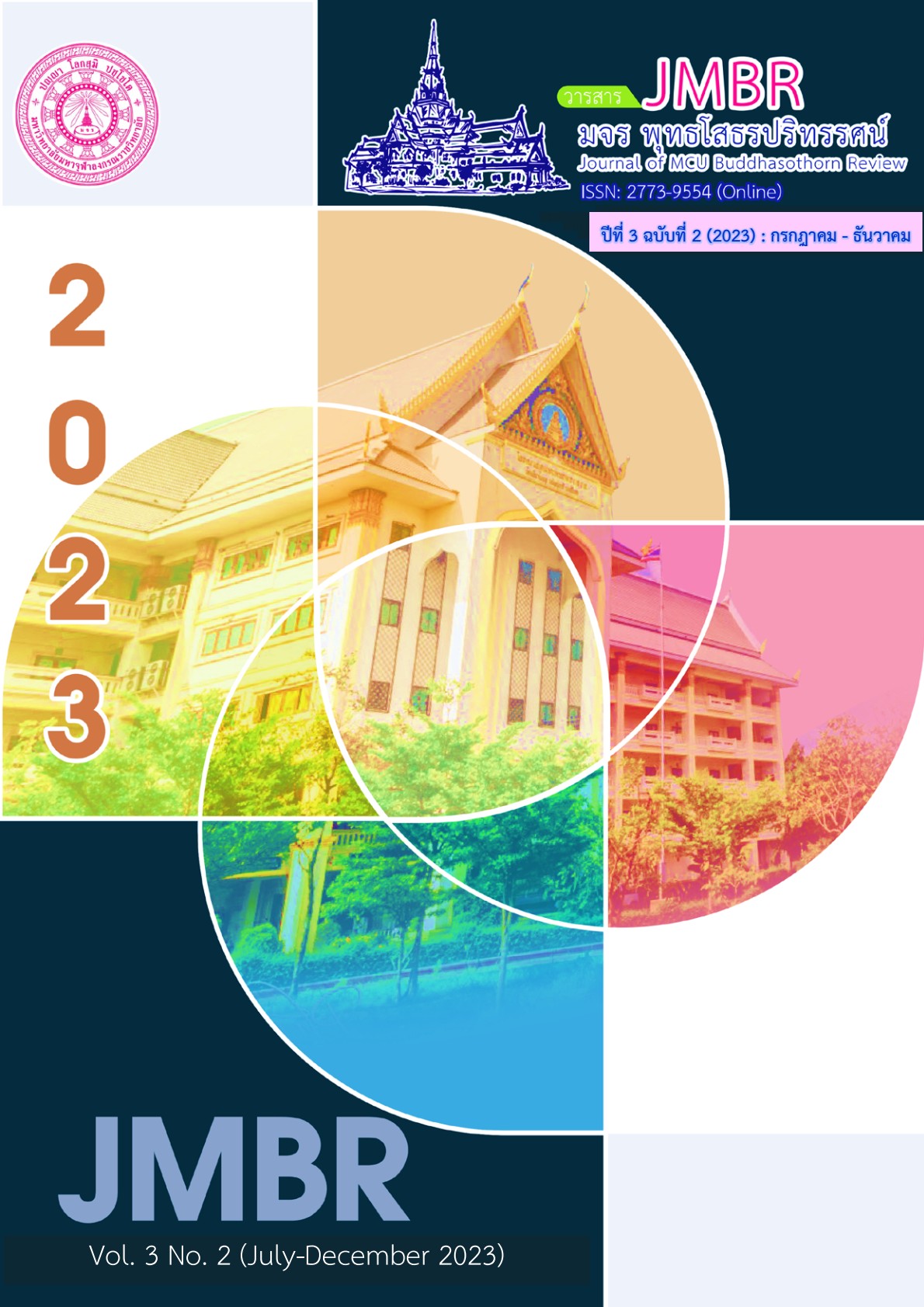Social Volunteer Development Process
Main Article Content
Abstract
Volunteerism can enable everyone in the society to live together. It became a society to give and share with each other. Taking into account the interests of the community is the location that must drive the entire system, especially school-aged children. Because volunteerism and public mind are desirable qualities that must be cultivated continuously, therefore, the development of volunteerism is a process that focuses on personal growth and development in the mind and have visibility into the service culture and competencies involved in volunteer work volunteering development generally involves fostering good leadership. Promote personal and social responsibility and promote systematic thinking skills and Teamwork Skills Planning and Goal Setting. The process begins with planning and setting the clear goals for volunteer development. Goals should be set with the clear content and objectives. In this article, the author presents the content issues related to the process of social volunteer development, namely: training and learning personal skill development psychological support creation and knowledge sharing and social support to be a guideline leading to the development of the process of developing volunteer spirit for society.
Article Details

This work is licensed under a Creative Commons Attribution-NonCommercial-NoDerivatives 4.0 International License.
ต้นฉบับที่ได้รับการตีพิมพ์ในวารสาร มจร พุทธโสธรปริทรรศน์ วิทยาลัยสงฆ์พุทธโสธร มหาวิทยาลัยมหาจุฬาลงกรณราชวิทยาลัย ถือเป็นกรรมสิทธิ์ของวิทยาลัยสงฆ์พุทธโสธร มหาวิทยาลัยมหาจุฬาลงกรณราชวิทยาลัย ห้ามนำข้อความทั้งหมดหรือบางส่วนไปพิมพ์ซ้ำ เว้นเสีย แต่ว่าจะได้รับอนุญาตจากวิทยาลัยฯ เป็นลายลักษณ์อักษร และเพื่อให้เป็นไปตามกฎหมายลิขสิทธิ์ ผู้เขียนทุกท่านต้องลงลายมือชื่อในแบบฟอร์มใบมอบลิขสิทธิ์ บทความให้แก่วารสาร พร้อมกับบทความต้นฉบับที่ได้แก้ไขครั้งสุดท้าย นอกจากนี้ ผู้เขียนทุกท่านต้องยืนยันว่าบทความต้นฉบับที่ส่งมาตีพิมพ์นั้น ได้ส่งมาตีพิมพ์เฉพาะในวารสาร มจร พุทธโสธรปริทรรศน์ เพียงแห่งเดียวเท่านั้น
References
กระทรวงศึกษาธิการ. (2552). หลักสูตรแกนกลาง การศึกษาขั้นพื้นฐาน พุทธศักราช 2551. กรุงเทพฯ: สำนักงานคณะกรรมการการศึกษาขั้นพื้นฐาน,
ธัญลักษณ์ ศรีสง่า. (14 ตุลาคม 2560). จิตวิวัฒน์: จิตอาสาข้ามพรมแดน. มติชน, 11.
ประจักษ์ ประภาพิทยากร และคณะ. (2539). ภาษากับวัฒนธรรม ท051. พิมพ์ครั้งที่ 9. นนทบุรี: ไทยร่มเกล้า.
พีรพัฒน์ พันศิริ, ศานติกร พินยงค์. การพัฒนาตนเองเพื่อความเป็นผู้มีจิตอาสา. สืบค้นเมื่อ 28 ธันวาคม 2566, จาก https://pws.npru.ac.th/pheerathano/data/filesf.
มัณฑรา ธรรมบุศย์. การจัดการกับอารมณ์. สืบค้นเมื่อ 8 สิงหาคม 2566, จาก https://www.novabizz.com/NovaAce/Emotional/Emotional.html.
ศูนย์ศึกษายุทธศาสตร์. (2562). จิตอาสากับการพัฒนาประเทศสู่ความมั่นคงอย่างยั่งยืน. กรุงเทพฯ: สถาบันวิชาการป้องกันประเทศ,
Barrett, L. F. (2017). How Emotions Are Made: The Secret Life of the Brain. Boston: Houghton Mifflin Harcourt.
DeVito, J. A. (2016). The Interpersonal Communication Book. 14th Edition. Boston, MA: Pearson.
Johnson, D. W., & Johnson, R. T. (2009). An educational psychology success story: Social
interdependence theory and cooperative learning. Educational Researcher, 38(5), 365-379.
LeDoux, J. E. (1996). The Emotional Brain: The Mysterious Underpinnings of Emotional Life. New York: Simon & Schuster.
Sternberg, R. J. (2003). Wisdom, Intelligence, and Creativity Synthesized. Cambridge University Press.


